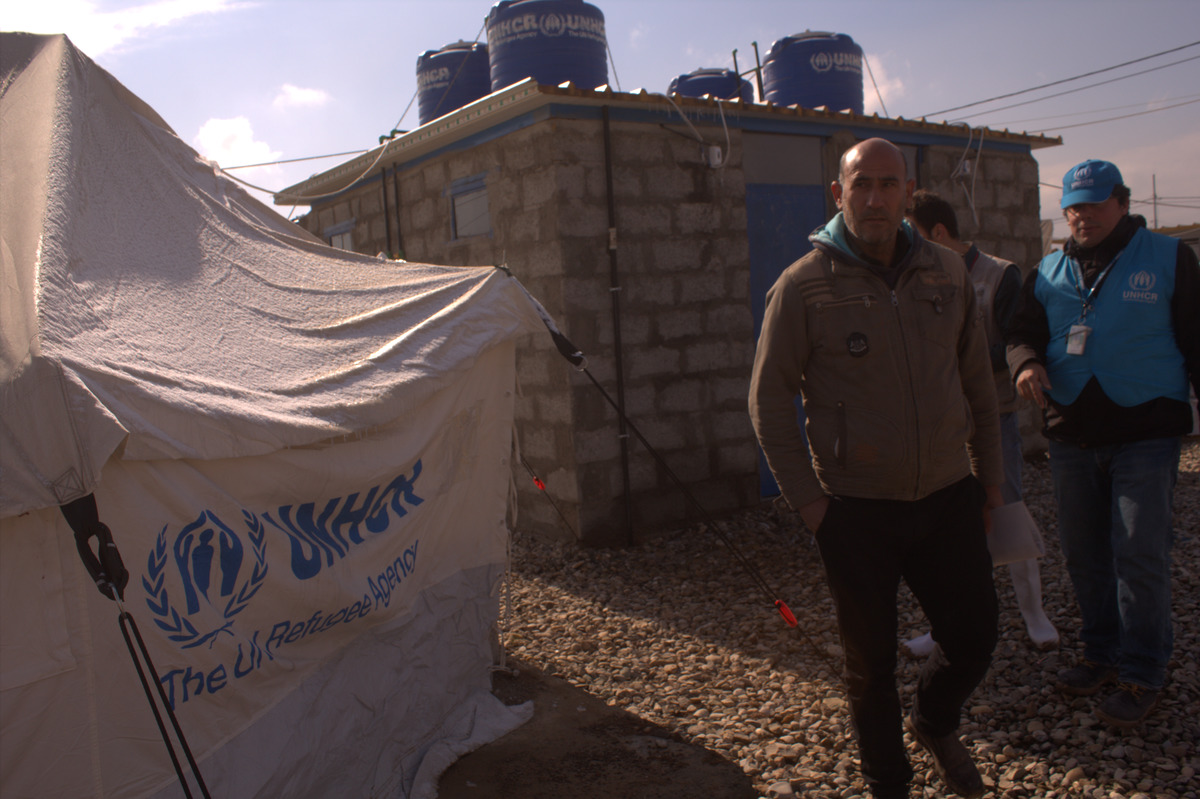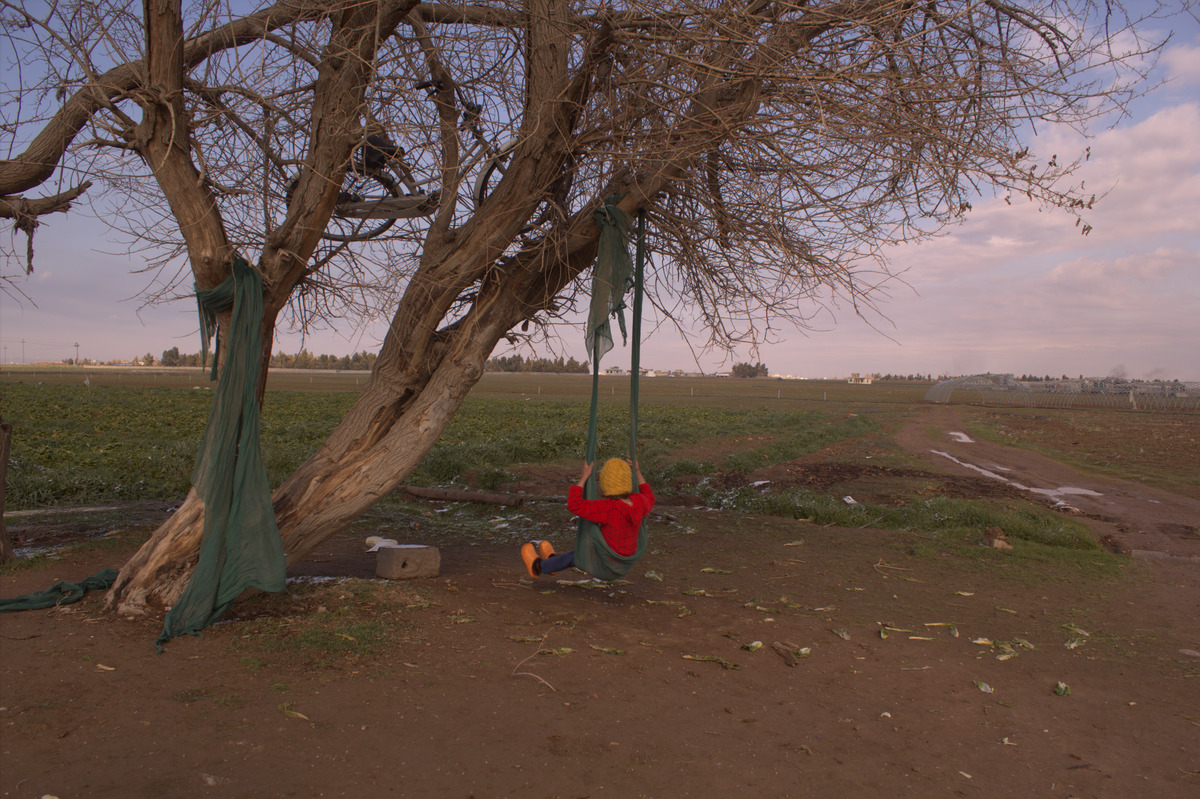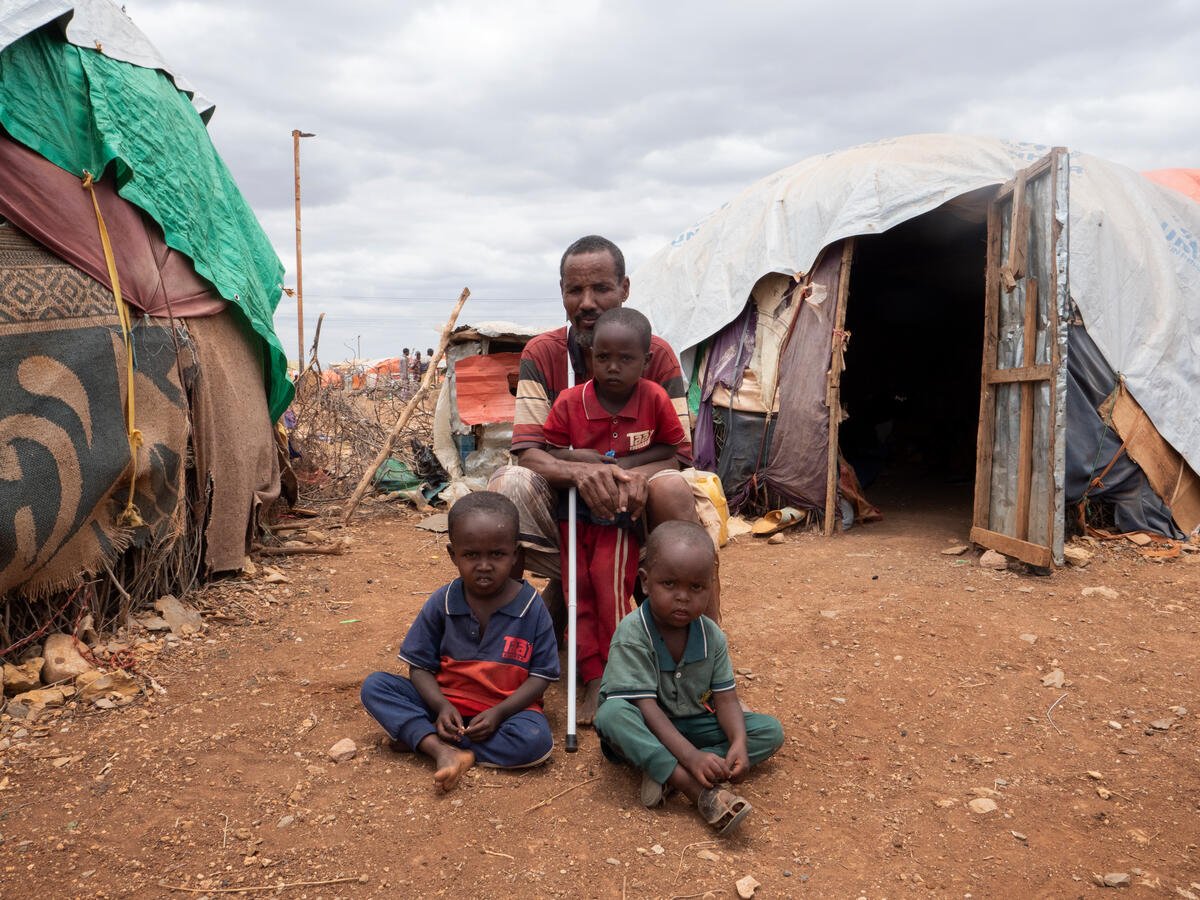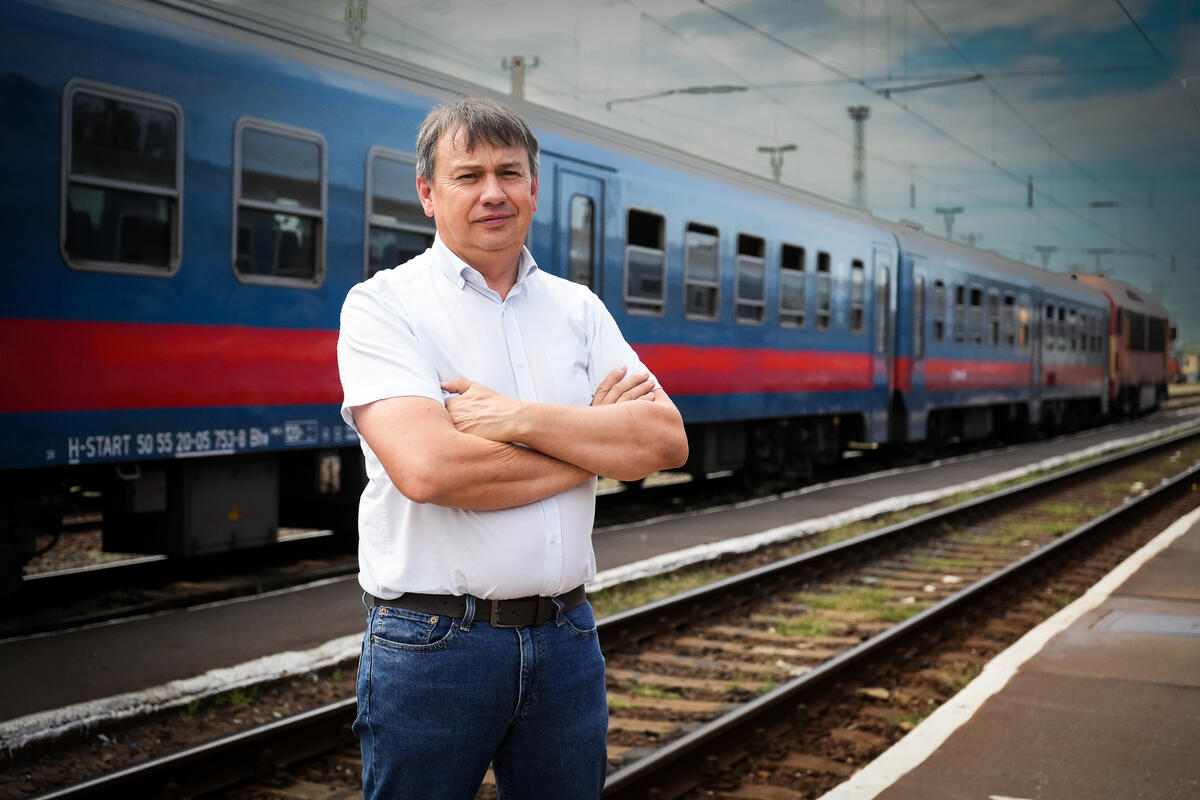In Iraqi camps, Syrians seek respite from hardship of exile
In Iraqi camps, Syrians seek respite from hardship of exile

ERBIL, Kurdistan Region of Iraq – On a wintry morning on the outskirts of Erbil, Syrian father-of-seven Ahmed prepares to move his family yet again. But this time is different: four years since they first became refugees, the family has asked to move into a refugee camp.
“When they called me to tell me we are now able to move, we were so happy,” says Ahmed, 46. “It was a difficult decision, of course. I never wanted to move to the camp. I was forced to move because of circumstances. In the camp we will get assistance, we don’t have to pay rent and my kids can go to school again.”
"In the camp we will get assistance, we don’t have to pay rent and my kids can go to school again.”
The family’s relief at their impending move to a refugee camp near Erbil, built and operated by UNHCR, the UN Refugee Agency, is in stark contrast to their efforts over the past four years to live as normal a life as possible outside a camp.
The family fled their home in the northern Syrian city of Kobane in 2013, shortly before armed groups besieged the area. After arriving in Iraqi Kurdistan they initially settled in Makhmour, a town some 80 kilometres southeast of Mosul. There, Ahmed worked as security guard on a farm, but in 2014 they were once again forced to flee for their lives when armed groups took over the town.
For the past year and a half, they have lived in a small, unfinished building on a farm outside Erbil, the capital of the Kurdistan Region of Iraq, where Ahmed, his wife Ameera and two of their sons work picking lettuce. They can make US$7 each for eight hours work, but employment is on an ad hoc basis, and often there is no work for days on end.
Their eldest son, 19-year-old Alan, works in a car showroom around 30 kilometres away from their home. Often, due to bad weather or a late shift, he is unable to return home and has to sleep at work, where he is not given a bed or food.
Huddled together with his family in a cold, dark room with no electricity and a single gas heater, Ahmed reflects on the drastic change in their circumstances that has seen his children transformed from promising students to prospective child labourers.
“Life in exile is very difficult. Back in Kobane, we had friends; childhood friends we grew up with and family we loved. When we came here we knew no one,” he says. “We have to ration everything, we have to cut out many things from our lives to save up to pay rent, and sometimes we even skip meals.”
“Life in exile is very difficult … When we came here we knew no one.”
As the Syria conflict passes a sixth calamitous anniversary, there are around 228,000 Syrian refugees living in Iraqi Kurdistan, an oil producing region which has been hit in recent years by depressed petroleum prices. The situation has been further aggravated by budgetary disputes that have impacted Iraqis and refugees alike.
Despite the warm welcome extended to Syrian refugees – more than half of whom live outside formal camps – the deteriorating economic situation has led to huge competition for limited jobs, low-cost housing, and access to schooling and health services, leaving many unable to cope with the high cost of living.

As a result, more than 4,300 Syrian families in the region are currently on waiting lists to enter refugee camps. But with spaces limited due to lack of available land for camp construction or expansion, UNHCR is working to identify the most vulnerable families for relocation. Those on the waiting list are assessed by staff and, where possible, provided with cash assistance while they wait to be relocated.
Overall, however, UNHCR’s preference has been to help families to reach or attain self-reliance outside of camps. Support includes multi-purpose cash assistance to vulnerable individuals, which is intended to cover a range of daily requirements.
The biggest factor in the decision by Ahmed and his family to relocate to the camp was the children’s futures, Ahmed says. Unable to afford the transportation costs, he has had to keep them out of school for the past four years. In the camp they will be able to enroll in lessons again, and, he hopes, regain the chance to make something of their lives.
"We want to go back home. But right now the security situation doesn’t allow it."
As they drink sweet tea and wait for the car to take them to the camp, Ahmed and his family look through pictures of their former lives in Syria; the children in school uniforms, on school trips with friends, family trips to Aleppo, and their beautiful garden in Kobane.
Ultimately, Ahmed dreams of returning to Kobane and their former lives, but for now he knows the best they can hope for is the relative security offered by the camp.
“Of course we want to go back home,” he says. “But right now the security situation doesn’t allow it. Our home has been destroyed, reduced to rubble. So right now it is not possible to return. There are no jobs and no future for my kids.”










